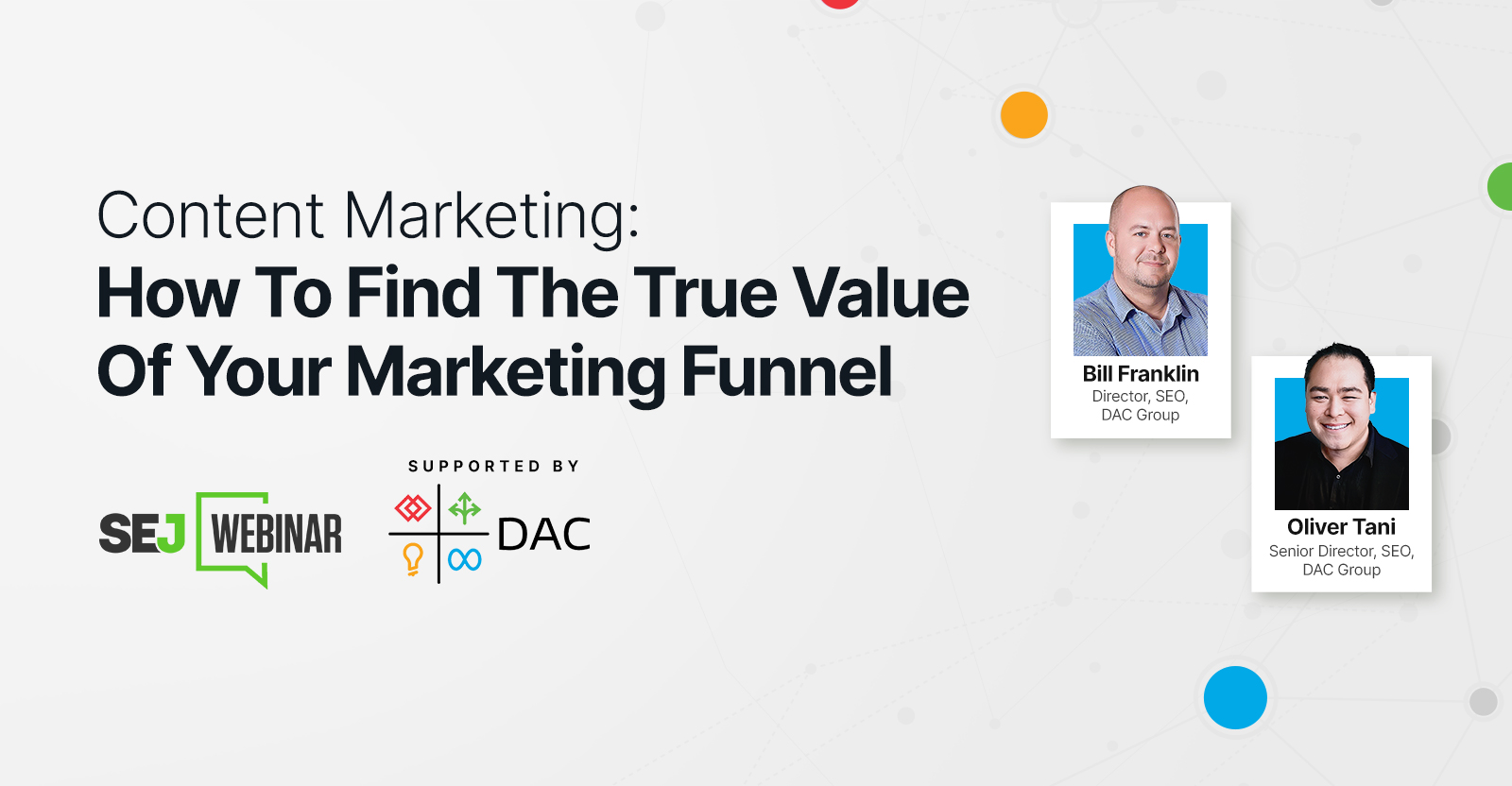SEO
How Much Can You Trust Recommendations In Google Ads?

You can barely go a minute in Google Ads without seeing recommendations put in front of you.
The overview screen surfaces them in a highly visible box.
The notification bell turns red, alerting you to the fact that you have several recommendations waiting.
Suggested budget increases appear right next to the graph at the top of the Campaigns section.
You can click a button to apply the updated amount and instantly spend more.
-
Screenshot from Google Ads, January 2022
So, how helpful are these recommendations that Google puts front and center for advertisers?
Let’s take a deeper dive into the types of recommendations and how well they correlate with the metrics that matter for performance.
Recommendations Overview
First, what are Google’s claims regarding the value of recommendations? The official support page says:
“Recommendations can introduce you to new, relevant features, help you get more out of your budget by improving your bidding, keywords, and ads, and can work to increase the overall performance and efficiency of your campaigns.”
If you work with an official Google representative, they’ll spend a significant amount of time talking about optimization scores.
This score measures how well your account is following best practices for setup, in Google’s eyes.
Overall, recommendations correlate directly to optimization score, and Google provides you with an exact percentage that the score will increase for each recommendation you accept.
Types Of Google Ads Recommendations
While the specific recommendations that surfaced vary depending on the account and types of campaigns being run, there are several common types of recommendations that tend to surface.
Let’s consider a few common ones here.
1. Budget
When a campaign is limited by budget, Google will often suggest increasing the daily budget cap to ensure that ads are showing throughout the day.
The dangerous aspect of this suggestion is that with one click you can boost your budget significantly.
For instance, one of the accounts is suggesting that you raise a $75/day campaign budget to $690/day.
That would result in an increase from a $2,250 monthly spend to a $20,700 monthly spend for that single campaign.
Whether managing accounts for clients or for their own businesses, most PPC managers have some level of budget constraints to work within and are not free to apply drastic budget increases without approval from higher up.
Budget increase recommendations can be helpful to surface the fact that a campaign is being limited in reach.
It can help make the case for adding budget incrementally (if performance is good). But instant, exponential budget boosts are less likely to be the ideal route for most accounts.
2. Conflicting Negative Keywords
This recommendation is one that I generally find useful.
If you’ve accidentally added any negative keywords that would prevent current keywords from showing up, Google will warn you and allow you to remove the conflicting negatives with one click.
In addition, this can also be helpful to flag keywords that you didn’t intend to be active if you wanted to keep certain words excluded but forgot to pause keywords that contained those words.
You should still take the time to double-check through the list of conflicts before auto-applying.
3. New Keywords
Google will periodically surface ideas for new keywords to add to your campaigns.
You should always review these lists carefully as opposed to mindlessly adding them with a single click.
I’ve found that keyword ideas can range from a handful of relevant queries to extremely broad and unrelated keyword themes.
For example, a Google Ads campaign promoting accounting services is seeing phrases like “how to find employer identification number” recommended to bid on.
4. Adding Extensions
Google will frequently suggest adding extensions that are not in place for an account.
Some extensions generally make sense to apply across the board, such as sitelinks and callouts.
However, not all extensions may be relevant to every company.
For instance, a SaaS product would likely prefer to send people through a signup process on a landing page as opposed to paying for a click to a phone call.
Even if you can’t necessarily immediately think of a way to incorporate a certain ad extension, be creative about potential options to help increase your ad visibility.
For example, a plumbing company might not immediately come to mind as an application for image extensions, but incorporating an image of a vehicle or even a photo of a person at work can help to visually draw attention to a search ad.
5. Add Audience Segments
These recommendations are another area that I do find useful at times, as the data tends to be based on actual audiences who are currently engaging with ads and visiting your website.
However, you should still take the time to review carefully through the options before applying everything, as not all audiences may be relevant to your brand.
6. Include Search Partners
Search Partners performance can be hit or miss depending on the account, and sometimes even if CPAs are efficient, lead quality can be lower.
If you’ve excluded Search Partners based on lead-related or budgetary reasons, you can just dismiss this recommendation.
7. Improve Responsive Search Ads
This suggestion will surface, either recommending adding more headlines/descriptions or tailoring copy more closely to keywords.
This area is also a complex one, as the ad strength metric for RSAs doesn’t necessarily correlate to good conversion performance.
However, a study from Optmyzr showed that ad strength can correlate to capturing more available impressions, so considering these recommendations can be helpful to improve overall reach.
Thoughts On Recommendations
Let’s come back to the question at hand in the title of the article.
How much can you trust recommendations in Google Ads?
First of all, recommendations are clearly tied to Google’s view of best practices, which may not correlate with the approach that will actually result in your account’s end goal.
For instance, a business’s ultimate goal for Google Ads may be to deliver qualified leads that turn into sales, to sell ecommerce products through their website, or to get users to purchase an app.
A recommendation that increases conversion volume but simply leads to lower quality leads may not be beneficial.
Rolling out recommendations for bid strategy adjustments may be best tested in experiment campaigns as opposed to immediately switching up the strategy.
For instance, you can allocate 50% of traffic to a version of a campaign using Target CPA bidding, while keeping 50% going to the original Manual CPC campaign.
Next, some recommendations may be more or less relevant for you depending on your business.
Think through the implications of applying each one and how likely it is to help or hurt your account.
When you’re already limited by budget with exact and phrase match keywords, adding broad match keywords likely won’t help, but if you have budget to play with, you may find broad match helpful for discovering new queries.
In short, Google’s recommendations can provide some helpful guidance and shouldn’t be entirely dismissed without review.
But don’t rely on them as an end-all tool for optimizing your account.
More resources:
Featured Image: fizkes/Shutterstock
SEO
Measuring Content Impact Across The Customer Journey

Understanding the impact of your content at every touchpoint of the customer journey is essential – but that’s easier said than done. From attracting potential leads to nurturing them into loyal customers, there are many touchpoints to look into.
So how do you identify and take advantage of these opportunities for growth?
Watch this on-demand webinar and learn a comprehensive approach for measuring the value of your content initiatives, so you can optimize resource allocation for maximum impact.
You’ll learn:
- Fresh methods for measuring your content’s impact.
- Fascinating insights using first-touch attribution, and how it differs from the usual last-touch perspective.
- Ways to persuade decision-makers to invest in more content by showcasing its value convincingly.
With Bill Franklin and Oliver Tani of DAC Group, we unravel the nuances of attribution modeling, emphasizing the significance of layering first-touch and last-touch attribution within your measurement strategy.
Check out these insights to help you craft compelling content tailored to each stage, using an approach rooted in first-hand experience to ensure your content resonates.
Whether you’re a seasoned marketer or new to content measurement, this webinar promises valuable insights and actionable tactics to elevate your SEO game and optimize your content initiatives for success.
View the slides below or check out the full webinar for all the details.
SEO
How to Find and Use Competitor Keywords

Competitor keywords are the keywords your rivals rank for in Google’s search results. They may rank organically or pay for Google Ads to rank in the paid results.
Knowing your competitors’ keywords is the easiest form of keyword research. If your competitors rank for or target particular keywords, it might be worth it for you to target them, too.
There is no way to see your competitors’ keywords without a tool like Ahrefs, which has a database of keywords and the sites that rank for them. As far as we know, Ahrefs has the biggest database of these keywords.
How to find all the keywords your competitor ranks for
- Go to Ahrefs’ Site Explorer
- Enter your competitor’s domain
- Go to the Organic keywords report
The report is sorted by traffic to show you the keywords sending your competitor the most visits. For example, Mailchimp gets most of its organic traffic from the keyword “mailchimp.”


Since you’re unlikely to rank for your competitor’s brand, you might want to exclude branded keywords from the report. You can do this by adding a Keyword > Doesn’t contain filter. In this example, we’ll filter out keywords containing “mailchimp” or any potential misspellings:


If you’re a new brand competing with one that’s established, you might also want to look for popular low-difficulty keywords. You can do this by setting the Volume filter to a minimum of 500 and the KD filter to a maximum of 10.


How to find keywords your competitor ranks for, but you don’t
- Go to Competitive Analysis
- Enter your domain in the This target doesn’t rank for section
- Enter your competitor’s domain in the But these competitors do section


Hit “Show keyword opportunities,” and you’ll see all the keywords your competitor ranks for, but you don’t.


You can also add a Volume and KD filter to find popular, low-difficulty keywords in this report.


How to find keywords multiple competitors rank for, but you don’t
- Go to Competitive Analysis
- Enter your domain in the This target doesn’t rank for section
- Enter the domains of multiple competitors in the But these competitors do section


You’ll see all the keywords that at least one of these competitors ranks for, but you don’t.


You can also narrow the list down to keywords that all competitors rank for. Click on the Competitors’ positions filter and choose All 3 competitors:


- Go to Ahrefs’ Site Explorer
- Enter your competitor’s domain
- Go to the Paid keywords report


This report shows you the keywords your competitors are targeting via Google Ads.
Since your competitor is paying for traffic from these keywords, it may indicate that they’re profitable for them—and could be for you, too.
You know what keywords your competitors are ranking for or bidding on. But what do you do with them? There are basically three options.
1. Create pages to target these keywords
You can only rank for keywords if you have content about them. So, the most straightforward thing you can do for competitors’ keywords you want to rank for is to create pages to target them.
However, before you do this, it’s worth clustering your competitor’s keywords by Parent Topic. This will group keywords that mean the same or similar things so you can target them all with one page.
Here’s how to do that:
- Export your competitor’s keywords, either from the Organic Keywords or Content Gap report
- Paste them into Keywords Explorer
- Click the “Clusters by Parent Topic” tab


For example, MailChimp ranks for keywords like “what is digital marketing” and “digital marketing definition.” These and many others get clustered under the Parent Topic of “digital marketing” because people searching for them are all looking for the same thing: a definition of digital marketing. You only need to create one page to potentially rank for all these keywords.


2. Optimize existing content by filling subtopics
You don’t always need to create new content to rank for competitors’ keywords. Sometimes, you can optimize the content you already have to rank for them.
How do you know which keywords you can do this for? Try this:
- Export your competitor’s keywords
- Paste them into Keywords Explorer
- Click the “Clusters by Parent Topic” tab
- Look for Parent Topics you already have content about
For example, if we analyze our competitor, we can see that seven keywords they rank for fall under the Parent Topic of “press release template.”


If we search our site, we see that we already have a page about this topic.


If we click the caret and check the keywords in the cluster, we see keywords like “press release example” and “press release format.”


To rank for the keywords in the cluster, we can probably optimize the page we already have by adding sections about the subtopics of “press release examples” and “press release format.”
3. Target these keywords with Google Ads
Paid keywords are the simplest—look through the report and see if there are any relevant keywords you might want to target, too.
For example, Mailchimp is bidding for the keyword “how to create a newsletter.”


If you’re ConvertKit, you may also want to target this keyword since it’s relevant.
If you decide to target the same keyword via Google Ads, you can hover over the magnifying glass to see the ads your competitor is using.


You can also see the landing page your competitor directs ad traffic to under the URL column.


Learn more
Check out more tutorials on how to do competitor keyword analysis:
SEO
Google Confirms Links Are Not That Important

Google’s Gary Illyes confirmed at a recent search marketing conference that Google needs very few links, adding to the growing body of evidence that publishers need to focus on other factors. Gary tweeted confirmation that he indeed say those words.
Background Of Links For Ranking
Links were discovered in the late 1990’s to be a good signal for search engines to use for validating how authoritative a website is and then Google discovered soon after that anchor text could be used to provide semantic signals about what a webpage was about.
One of the most important research papers was Authoritative Sources in a Hyperlinked Environment by Jon M. Kleinberg, published around 1998 (link to research paper at the end of the article). The main discovery of this research paper is that there is too many web pages and there was no objective way to filter search results for quality in order to rank web pages for a subjective idea of relevance.
The author of the research paper discovered that links could be used as an objective filter for authoritativeness.
Kleinberg wrote:
“To provide effective search methods under these conditions, one needs a way to filter, from among a huge collection of relevant pages, a small set of the most “authoritative” or ‘definitive’ ones.”
This is the most influential research paper on links because it kick-started more research on ways to use links beyond as an authority metric but as a subjective metric for relevance.
Objective is something factual. Subjective is something that’s closer to an opinion. The founders of Google discovered how to use the subjective opinions of the Internet as a relevance metric for what to rank in the search results.
What Larry Page and Sergey Brin discovered and shared in their research paper (The Anatomy of a Large-Scale Hypertextual Web Search Engine – link at end of this article) was that it was possible to harness the power of anchor text to determine the subjective opinion of relevance from actual humans. It was essentially crowdsourcing the opinions of millions of website expressed through the link structure between each webpage.
What Did Gary Illyes Say About Links In 2024?
At a recent search conference in Bulgaria, Google’s Gary Illyes made a comment about how Google doesn’t really need that many links and how Google has made links less important.
Patrick Stox tweeted about what he heard at the search conference:
” ‘We need very few links to rank pages… Over the years we’ve made links less important.’ @methode #serpconf2024″
Google’s Gary Illyes tweeted a confirmation of that statement:
“I shouldn’t have said that… I definitely shouldn’t have said that”
Why Links Matter Less
The initial state of anchor text when Google first used links for ranking purposes was absolutely non-spammy, which is why it was so useful. Hyperlinks were primarily used as a way to send traffic from one website to another website.
But by 2004 or 2005 Google was using statistical analysis to detect manipulated links, then around 2004 “powered-by” links in website footers stopped passing anchor text value, and by 2006 links close to the words “advertising” stopped passing link value, links from directories stopped passing ranking value and by 2012 Google deployed a massive link algorithm called Penguin that destroyed the rankings of likely millions of websites, many of which were using guest posting.
The link signal eventually became so bad that Google decided in 2019 to selectively use nofollow links for ranking purposes. Google’s Gary Illyes confirmed that the change to nofollow was made because of the link signal.
Google Explicitly Confirms That Links Matter Less
In 2023 Google’s Gary Illyes shared at a PubCon Austin that links were not even in the top 3 of ranking factors. Then in March 2024, coinciding with the March 2024 Core Algorithm Update, Google updated their spam policies documentation to downplay the importance of links for ranking purposes.
The documentation previously said:
“Google uses links as an important factor in determining the relevancy of web pages.”
The update to the documentation that mentioned links was updated to remove the word important.
Links are not just listed as just another factor:
“Google uses links as a factor in determining the relevancy of web pages.”
At the beginning of April Google’s John Mueller advised that there are more useful SEO activities to engage on than links.
Mueller explained:
“There are more important things for websites nowadays, and over-focusing on links will often result in you wasting your time doing things that don’t make your website better overall”
Finally, Gary Illyes explicitly said that Google needs very few links to rank webpages and confirmed it.
I shouldn’t have said that… I definitely shouldn’t have said that
— Gary 鯨理/경리 Illyes (so official, trust me) (@methode) April 19, 2024
Why Google Doesn’t Need Links
The reason why Google doesn’t need many links is likely because of the extent of AI and natural language undertanding that Google uses in their algorithms. Google must be highly confident in its algorithm to be able to explicitly say that they don’t need it.
Way back when Google implemented the nofollow into the algorithm there were many link builders who sold comment spam links who continued to lie that comment spam still worked. As someone who started link building at the very beginning of modern SEO (I was the moderator of the link building forum at the #1 SEO forum of that time), I can say with confidence that links have stopped playing much of a role in rankings beginning several years ago, which is why I stopped about five or six years ago.
Read the research papers
Authoritative Sources in a Hyperlinked Environment – Jon M. Kleinberg (PDF)
The Anatomy of a Large-Scale Hypertextual Web Search Engine
Featured Image by Shutterstock/RYO Alexandre
-

 PPC4 days ago
PPC4 days ago19 Best SEO Tools in 2024 (For Every Use Case)
-

 MARKETING7 days ago
MARKETING7 days agoWill Google Buy HubSpot? | Content Marketing Institute
-
SEARCHENGINES7 days ago
Daily Search Forum Recap: April 16, 2024
-

 SEO7 days ago
SEO7 days agoGoogle Clarifies Vacation Rental Structured Data
-

 MARKETING6 days ago
MARKETING6 days agoStreamlining Processes for Increased Efficiency and Results
-
SEARCHENGINES6 days ago
Daily Search Forum Recap: April 17, 2024
-

 PPC7 days ago
PPC7 days agoHow to Collect & Use Customer Data the Right (& Ethical) Way
-

 SEO6 days ago
SEO6 days agoAn In-Depth Guide And Best Practices For Mobile SEO
















You must be logged in to post a comment Login